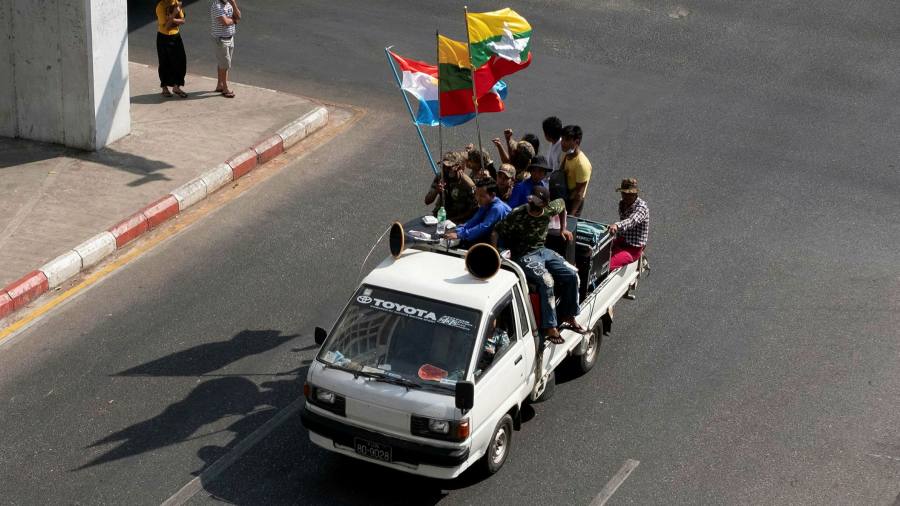[ad_1]
The military coup in Myanmar is a dispiriting reversal for the cause of democracy in one of Asia’s poorest countries, and globally. The transition towards greater political freedoms over the past decade had, to be sure, been flawed and incomplete. Its leader, Aung San Suu Kyi, was badly tarnished internationally by her defence of the 2017 military crackdown on Rohingya Muslims. Yet, apparently against the trend elsewhere, the country seemed one of the few where democratic progress was continuing — including in the latest parliamentary elections in November. A month into 2021 it has, for now, been stopped in its tracks.
Myanmar’s democratic transformation was always something less than the fairytale that it first appeared. When the military junta stepped down 10 years ago — the same time as Middle East leaders were being toppled in the Arab spring — the constitution drawn up in 2008 ensured the military retained a grip on power. It was guaranteed a quarter of parliamentary seats and control of the three most powerful ministries — of home affairs, defence and border affairs. For Aung San Suu Kyi’s National League for Democracy, elected to government in 2015, changing the constitution was pretty much impossible since it required 75 per cent support in parliament.
The international community was, rightly, preoccupied with the alleged genocide of the Rohingyas. But it gave less attention to the fragile and unfinished democratic transition still going on in the hugely complex country.
Aung San Suu Kyi came to be seen overseas as a defender, even ally, of the generals, when she defended the crackdown on the Rohingya at the International Court of Justice in 2019. Ironically, while she remains hugely popular with Myanmar’s Buddhist majority, what was perceived internationally as her failure to stand up for the values she long embodied as an opposition activist may have emboldened the generals to oust her, believing the backlash abroad would be muted.
By coincidence or not, the military’s claim that the NLD’s poll victory last November was fraudulent also came just as the president of the world’s most powerful democracy was similarly claiming, without evidence, to have had an election stolen from him. Domestic observers said the poll — in which the NLD won 83 per cent of seats, even more than in 2015 — was credible, despite some shortcomings. International monitors criticised Myanmar for barring Rohingyas, hardly big supporters of the generals, from voting.
If there is hope, it is that the domestic and international backdrop is very different from 1962, when the military first seized power, or 1990, when it detained Aung San Suu Kyi. A young population that has had a taste of political choice may not easily let it go. While the coup is an early test for the Biden administration, moreover, when US democracy itself is looking bruised, prospects for a co-ordinated western response look better than under the Trump White House.
Western democracies have better developed tools for applying pressure than during Myanmar’s earlier decades of military rule. There need not be a rapid return to the sweeping economic sanctions of that era, which kept the country in poverty. But there is scope to reintroduce and extend more targeted measures aimed at the commercial interests of the military and its pet oligarchs. Despite the risk of pushing the country towards neighbouring China, the generals of Naypyidaw have been no great friends of Beijing. The flame of Myanmar’s democracy burnt in darkness for years. Even now, it may not have been entirely extinguished.
[ad_2]
Source link





